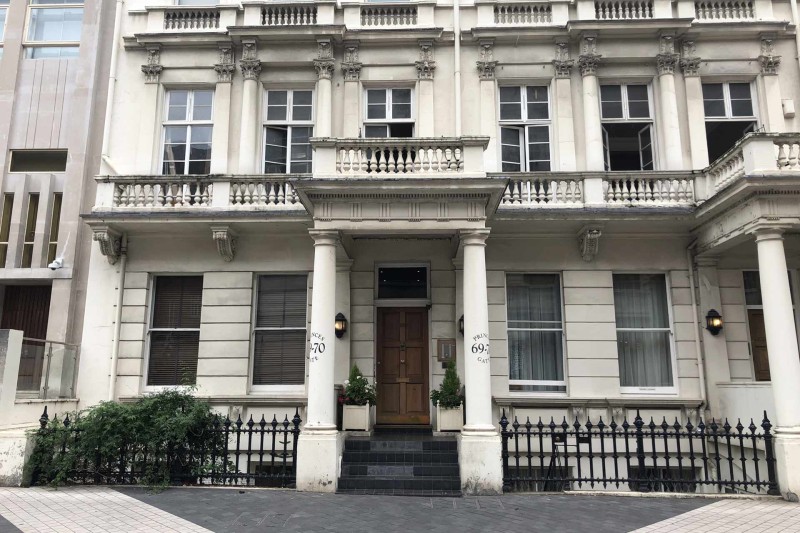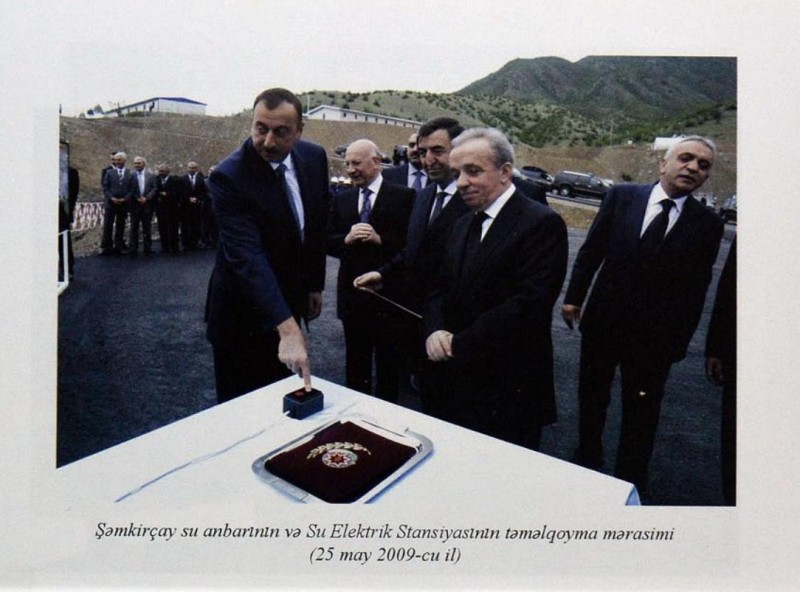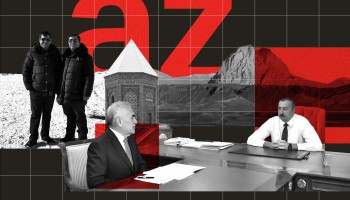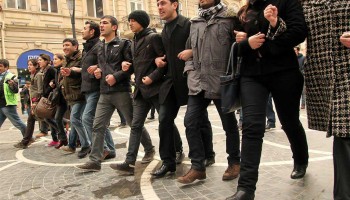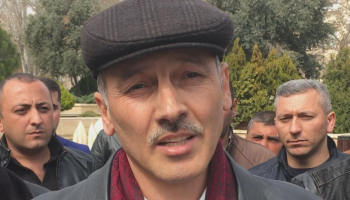In what must have been one of the most aggressive reactions to being featured in the Panama Papers, Turkish multi-millionaire Mehmet Cengiz dialed up a Turkish newsroom to threaten the journalists who worked there.
“You put my face on the front page — have you no shame?,” Cengiz demanded of staff at the Istanbul daily paper Cumhuriyet, which had just splashed his face on its front page under the headline “Panamanian Turks.”
“I will fight you... Sons of bitches, don’t turn me into a killer.”
Cumhuriyet’s findings, published in June 2016, revealed a string of secret offshore companies established by the construction magnate. He also controlled a company in the United Kingdom that, in 2008, paid a consultancy fee of $3.07 million to an offshore firm called Vremax Properties Limited.
The arrangement was puzzling, since the payment was based on a vague consultancy contract with a newly-formed, anonymous firm that had no public record of engaging in consulting work.
Now, new records obtained by OCCRP can reveal what happened behind the scenes.
Several months after the payment, Vremax purchased a $2.3-million luxury apartment in the heart of London. The apartment was already occupied by a young businessman from Azerbaijan, Juma Ahmadzada. Vremax immediately gave him permission to keep living there. What’s more, two years after the initial purchase, the secretive offshore company bought two other apartments next door and allowed Ahmadzada to remodel them, creating a truly palatial residence for him.
Ahmadzada had no known relationship with the Turkish magnate. But his father, Ahmad Ahmadzada, did.
He is the head of Azerbaijan’s state water resources management company, the Amelioration and Water Resources Open Joint Stock Company, which signed a contract with Cengiz’s construction conglomerate to build a massive hydroelectric dam in the country’s northwest.
Taken together, the sequence of events has the appearance of serious impropriety. Within a span of months:
An Azerbaijani state water company awarded a huge contract to Cengiz’s construction firm;
Another company controlled by Cengiz made a large payment to an offshore company;
That offshore bought a luxurious London apartment and “gave permission” for the son of the water company’s head to live in it.
OCCRP has seen no direct evidence that the apartment represented a bribe. The owners of Vremax are unknown, as is whether the firm did any real consulting work and whether it had any other sources of income. Finally, the specific role that may have been played by Mehmet Cengiz, Juma Ahmadzada, or his father, Ahmad, in these arrangements is unknown.
The heart of the mystery lies in the offshore secrecy that makes Vremax’s true nature nearly impossible to discover. That’s why the affair warrants further investigation, according to two corruption specialists who reviewed OCCRP’s findings.
“This case contains a combination of red flags which arouse suspicion, including politically connected individuals using secretive companies to purchase high-end property to store wealth without apparent explanation,” said Duncan Hames, director of policy at Transparency International U.K. “That merits further scrutiny by the relevant authorities on the circumstances surrounding the purchase.”
Graham Barrow, an independent financial crime specialist, said that the purpose of the $3-million contract could have been “solely to set up a facilitation payment linked to the reservoir deal that involved [Ahmad Ahmadzada] receiving a personal payment ... routed through a secrecy location to purchase a property in London for his son to occupy,” though he cautioned that the lack of transparency in the deal made it impossible to draw definite conclusions.
Cengiz Holding, along with Mehmet and Ekrem Cengiz, did not respond to repeated requests for comment.
The press office of the Amelioration and Water Resources Open Joint Stock Company insisted that the Ahmadzada family had no ties to Vremax.
"We would like to inform you that the theoretical suggestions mentioned in your letter are based on wrong and misleading assumptions," they wrote.
The younger Ahmadzada, they explained, had been a tenant at the London address since 2002, years before Vremax bought the property. "During this time, ownership of the property has legally changed which did not influence his temporary stay at the said address,” they added.
"Separately, mentioned infrastructure project was realized in accordance with the jurisdiction of the Republic of Azerbaijan and in line with the international norms."
An Anatolian Tiger
The Cengiz family, one of Turkey’s wealthiest, started its eponymous construction business in 1969. But it took until the mid-2000s for Cengiz Holding to hit the big time, carrying out a string of flagship infrastructure projects for the Turkish government. It was a key player in the construction of a high-speed train line between Istanbul and Ankara, as well as Istanbul’s new airport, which will be the biggest in the world once finished.
This success has been linked to Mehmet Cengiz’s status as one of the “Anatolian Tigers,” a group of businessmen who gained wealth and power following the rise of President Recep Tayyip Erdogan’s Justice and Development Party (AKP) in the early 2000s. His conglomerate’s extraordinary run of contracts was an example of the patronage networks built in the country by Erdogan, according to U.S.-based Turkey specialist A. Kadir Yildirim.
But Cengiz’s empire was not built on Turkish contracts alone: His firm has a global footprint, winning contracts to build projects in Kazakhstan, northern Iraq, Kuwait, and Bosnia and Herzegovina. Cengiz Holding now encompasses 35 firms and affiliates, with annual revenues of over $5 billion. Mehmet Cengiz, the firm’s chairman and figurehead, regularly features on Forbes’ list of Turkey’s wealthiest people, along with his brothers. His fortune was estimated at $550 million earlier this year.
Cengiz’s empire abroad began in Azerbaijan, a country with long-standing cultural and economic ties to Turkey. The Vaykhir dam and hydroelectric power plant in the Caucasian country’s Nakhchivan exclave, completed in 2005, was his first foreign project.
It wouldn’t be the last. In May 2009, Cengiz joined Azerbaijan’s president, Ilham Aliyev, at a groundbreaking ceremony for his conglomerate’s construction of another major dam and hydroelectric power station along the country’s Shamkir River. An entourage of officials and construction workers applauded as Aliyev pressed a small button to mark the beginning of construction.
The idea for the Shamkirchay project, meant to improve the supply of drinking water to Azerbaijan’s second largest city, Ganja, and nearby districts, and to generate 56 million kWh of electric power per year, is credited to former President Heydar Aliyev. The state water company and Cengiz even put out a book on the project’s illustrious history: “The Ideas of Great Leader Heydar Aliyev to Build the Shamkirchay Water Reservoir Are Being Successfully Implemented.”
Ahmad Ahmadzada, the head of the water management company, was also at the groundbreaking ceremony.
His company had been responsible for some of the country’s largest infrastructure projects, including the Shamkirchay dam, during his long tenure. Over the years, his influence earned him the nickname “The Baron.”
The details of how Ahmadzada’s company selected Cengiz for the new project are unknown. But at around the same time, another connection between the two families was beginning to unfold in London.
Just over two months before the contract was signed, an obscure corner of Cengiz’s business empire — a U.K.-registered company called MEC Metal Equipment & Consultancy Co. — made its $3-million transfer to the mysterious Vremax Properties. As reported by Cumhuriyet, this payment was connected to a brief consultancy contract between the two companies.
There are no references to Vremax’s business activities or consulting work online, and it has no website. Reporters were unable to find any public mention of the company carrying out consultancy work in any instance, other than its single contract with Cengiz.
The contract described several services Vremax was to provide to MEC, including “market studies and analysis” in metals, mining, and construction in Russia and China; “pre-feasibility studies” and “analysis” related to factory investments and acquisitions. It is unclear whether any of this work was performed.
Though a $3-million consulting contract might seem trivial for a company with annual revenues exceeding $5 billion, metadata in the document suggests that it was important enough to reach a senior Cengiz executive. The file was created and written on software registered to Murat Ergonul, the name of Cengiz Holding’s deputy general manager. He did not respond to requests for comment.
The metadata reveals another curiosity. The file appears to have been created three months after the payment was made, suggesting the contract did not even exist at the time the $3 million landed in Vremax’s Swiss bank account.
How is Cengiz linked to MEC?
Unlike a standard English “limited company,” MEC — which was previously named Merlan Equipment and Trading Co., then renamed MEC Metal Equipment & Consultancy Co. — was registered as a “limited partnership,” an unusual form of incorporation that did not require it to file financial accounts. Paperwork lodged with the U.K. company registry details only MEC’s “partners” — similar to shareholders — but contains no indication of the work carried out by MEC, nor any clues to its true owners.
The London Apartment
Five months after receiving the $3-million payment, Vremax made its big real estate investment. The London apartment occupied by Juma Ahmadzada, bought for $2.3 million in cash, was registered to the offshore company the following August.
Located in Kensington and Chelsea, one of London’s most expensive boroughs, Ahmadzada’s apartment is prime real estate. It sits on the ground floor of a grand mansion next door to London’s world-famous Victoria and Albert Museum, and a short stroll from Hyde Park.
Over the next several years, Vremax also spent $3.4 million on two neighboring apartments and an adjacent corridor, allowing Ahmadzada to expand his living space across an entire floor. Now spanning 273 square meters, the complex is a vast expanse by the standards of central London.
Oliver Fish, a real estate agent specializing in the city’s luxury market, said that the entire complex would be worth in the region of $7.5 million today. “The location is very desirable as it is right by Hyde Park and Knightsbridge underground and amenities,” he said.
Since Vremax is registered in the British Virgin Islands, a British territory well known for corporate secrecy, the company’s owners remain hidden. Neither the island’s corporate registry nor the firm’s agent was willing to provide information on Vremax’s directors or shareholders.
But OCCRP journalists spotted Juma Ahmadzada’s name in paperwork filed to the local council in 2017 to legalize the changes made to the layout of the three flats and to renovate them with new bathrooms, a library, and a gym. Ahmadzada is listed as the “applicant,” meaning he was the driving force behind the renovation work on the property.
In another filing, an architect employed by Ahmadzada to manage the renovation of the flats described the person who submitted legal paperwork to the council — Ahmadzada — as their owner.
The businessman shares the apartment with his wife, Gunel Rustamova, the London-based daughter of another Azeri power broker: Elman Rustamov, governor of the Central Bank of Azerbaijan.
Ahmadzada’s Career
Today, Juma Ahmadzada owns and operates firms in London, the Czech Republic, Turkey, and Azerbaijan, including two hotel developments. But at the time the first flat was purchased, the 29-year-old was just getting his business career off the ground, and his wife’s fledgling fashion brand was not turning a profit.
“Alarm Bells Ringing”
Anti-corruption experts who reviewed the circumstances of the transaction said it should have received greater scrutiny.
Graham Barrow, the British specialist in financial crime, said: “When the property was purchased in 2008, there was a requirement placed on the solicitors to validate the source of funds for the purchase. As it was structured through an offshore BVI [British Virgin Islands-registered] company, care should have been taken to establish the underlying beneficial owners of the company.”
“Alarm bells” should have been ringing “very loudly,” Barrow concluded.
Duncan Hames said the case “illustrates the urgency for [Prime Minister Boris Johnson] to bring forward long-promised legislation to unmask the true owners of offshore companies that own U.K. property.”
“Secretive companies registered in the British Virgin Islands are commonly used by those seeking to hide suspicious wealth in luxury London property, and it is also time they published their own company register,” he said.
In 2015, Transparency International found that over 75 percent of U.K. properties under investigation for corruption are hidden behind offshore companies.
